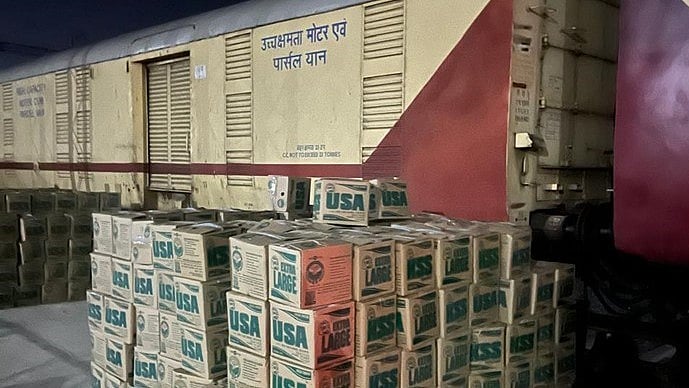The Western Railway’s Business Development Unit (BDU) has successfully transitioned the transportation of chickoo fruit from roadways to railways in South Gujarat. A dedicated special train now operates from Bilimora to Adarsh Nagar in Delhi, providing farmers from Valsad, Navsari, and surrounding areas with improved access to distant markets and ensuring fair prices for their produce.
According to Western Railway (WR) officials, extensive discussions were held with various Chickoo Cooperative Societies in the Valsad district to highlight the advantages of railway transport over traditional road transport. As a direct result of these engagements, V.V.K.S. Khedut Mandali, Amalsad, recently loaded approximately 35,000 boxes of chickoo from Bilimora for shipment to Adarsh Nagar, Delhi.
The special train, carrying the perishable cargo, reached its destination within 24 hours, arriving at 7:00 AM. This drastically reduced transit time compared to the 35-hour journey by road, ensuring that the fruit remained fresh for market sales. The expedited delivery not only benefits farmers financially but also enhances the quality and competitiveness of their produce in the market.
Encouraged by this success, WR has planned 14 additional rakes to transport perishable goods, generating an estimated revenue of Rs. 1.25 crore. This initiative aligns with Indian Railways’ broader vision of supporting the agricultural economy by providing efficient and cost-effective logistics solutions.
A senior WR official stated that, buoyed by the positive response, the BDU in Valsad is now engaging with Mango Cooperative Societies to facilitate similar railway transportation solutions for the upcoming mango season. This effort builds on the success of the Kisan Rail scheme, which played a vital role during the COVID-19 pandemic by transporting over 150 rakes of perishable goods, ensuring timely deliveries, and reducing wastage for farmers.
By shifting perishable transportation from road to rail, Indian Railways is not only improving supply chain efficiency but also contributing to environmental sustainability by reducing carbon emissions. “This initiative is expected to pave the way for a more structured and farmer-friendly agricultural logistics network in the future” said an official.
